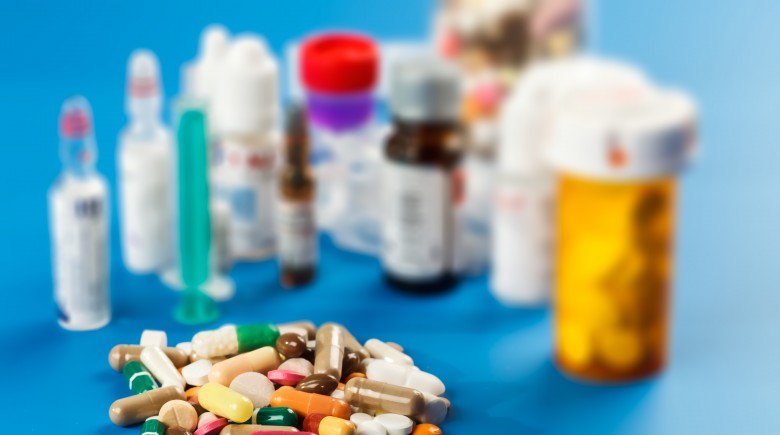We all know that health care costs are going up at an alarming rate. Whenever we visit the doctor we often dread that bill that comes with, not to mention the bill for whatever prescription drug comes along with it. So when the doctor says that they have a free sample that we can use, and we will not have to worry about buying the actual prescription, we often jump at the opportunity. After all, we are saving sometimes hundreds of dollars by avoiding filling that prescription. But a new study from the Canadian Journal of Hospital Pharmacy says that we may be better off skipping the free drug samples.
The study looked at the distribution of free samples throughout clinics in the Toronto area. In the years 2007, 2009, and 2012 they distributed, and then followed up unannounced, to see who was using the samples. They were looking at how many samples were distributed to the doctors, how many were passed along to the patients, and whether or not there were significant changes over the years.
Despite all the record keeping at hospitals to ensure patient safety, only 19% of the drugs were even listed on the hospital formulary (the list giving details of the drug and what maladies it is used to treat). While this may not seem significant, since these are just free samples, it does fly in the face of what medication is all about. The average distribution of these medications, per patient, was .4. This means that for every 2.5 patients seen, one leaves with a sample of a prescription drug. These samples are not on the official hospital list of drugs that the doctors should be using; therefore there it is likely that no research is being done into whether or not the drug is an acceptable treatment method. Another significant finding in the research was that 4% of the drugs passed along to the patients were past their expiration date. While many drugs will remain viable well past their date of expiration, this is not always the case. With a new drug, it is important to heed the warnings.
These findings can have quite the effect on the consumer. While most people will trust that their doctor has done his or her research, that is not always the case. But aside from visitations to one’s regular doctor, there is always the fact that many people utilize walk-in clinics where they will see whichever doctor happens to be present. Using an unknown doctor, one who is handing out free samples to patients he does not know, can be detrimental.
It may be tempting to accept the free samples from the doctor in the spirit of saving money. And after receiving that hospital bill (even if you do have insurance) the last thing you want to do is spend even more money on prescription drugs. However, in order to keep yourself safe, it is often best to make sure you use a drug that has been around, has been tested, and is not close to its expiration date.
The medical industry appears to be convoluted and mysterious. Those who do not work in it see it as this mysterious bubble that you go into to get well, and those who work inside know everything about all the problems that walk through the door. In reality, the doctors are so busy that they often do not have time to research every new drug that comes through their door. Instead, they will take the rep’s word for it, and simply pass along the free samples without regard to the expiration date or cross-checking the hospital formulary. This could lead to long-term negative consequences for the consumer
We all know that health care costs are going up at an alarming rate. Whenever we visit the doctor we often dread that bill that comes with, not to mention the bill for whatever prescription drug comes along with it. So when the doctor says that they have a free sample that we can use, and we will not have to worry about buying the actual prescription, we often jump at the opportunity. After all, we are saving sometimes hundreds of dollars by avoiding filling that prescription. But a new study from the Canadian Journal of Hospital Pharmacy says that we may be better off skipping the free drug samples.
The study looked at the distribution of free samples throughout clinics in the Toronto area. In the years 2007, 2009, and 2012 they distributed, and then followed up unannounced, to see who was using the samples. They were looking at how many samples were distributed to the doctors, how many were passed along to the patients, and whether or not there were significant changes over the years.
Despite all the record keeping at hospitals to ensure patient safety, only 19% of the drugs were even listed on the hospital formulary (the list giving details of the drug and what maladies it is used to treat). While this may not seem significant, since these are just free samples, it does fly in the face of what medication is all about. The average distribution of these medications, per patient, was .4. This means that for every 2.5 patients seen, one leaves with a sample of a prescription drug. These samples are not on the official hospital list of drugs that the doctors should be using; therefore there it is likely that no research is being done into whether or not the drug is an acceptable treatment method. Another significant finding in the research was that 4% of the drugs passed along to the patients were past their expiration date. While many drugs will remain viable well past their date of expiration, this is not always the case. With a new drug, it is important to heed the warnings.
These findings can have quite the effect on the consumer. While most people will trust that their doctor has done his or her research, that is not always the case. But aside from visitations to one’s regular doctor, there is always the fact that many people utilize walk-in clinics where they will see whichever doctor happens to be present. Using an unknown doctor, one who is handing out free samples to patients he does not know, can be detrimental.
It may be tempting to accept the free samples from the doctor in the spirit of saving money. And after receiving that hospital bill (even if you do have insurance) the last thing you want to do is spend even more money on prescription drugs. However, in order to keep yourself safe, it is often best to make sure you use a drug that has been around, has been tested, and is not close to its expiration date.
The medical industry appears to be convoluted and mysterious. Those who do not work in it see it as this mysterious bubble that you go into to get well, and those who work inside know everything about all the problems that walk through the door. In reality, the doctors are so busy that they often do not have time to research every new drug that comes through their door. Instead, they will take the rep’s word for it, and simply pass along the free samples without regard to the expiration date or cross-checking the hospital formulary. This could lead to long-term negative consequences for the consumer




